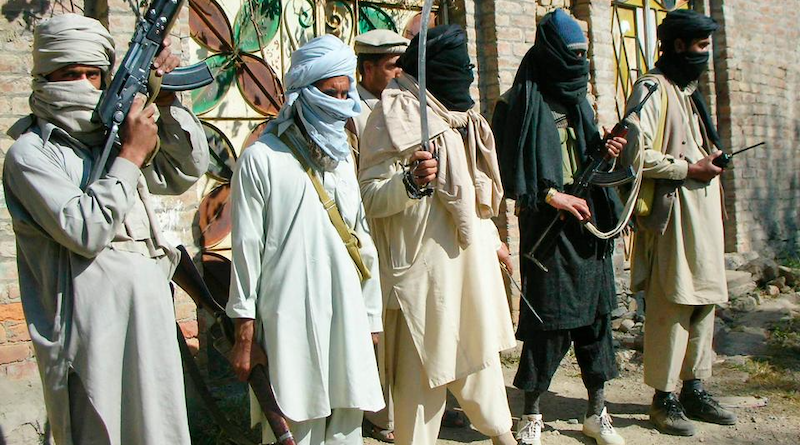
Afghanistan has become a sanctuary for terrorist groups, with the Tehreek-i-Taliban Pakistan (TTP) emerging as the largest and most influential among them. A UN report highlights the extensive support TTP receives from the Afghan Taliban and Al Qaeda, raising serious concerns about regional security. This opinion piece explores the implications of TTP’s resurgence and the broader impact on South Asia.
The UN monitoring report paints a stark picture of TTP’s growth. With an estimated 6,000-6,500 fighters, TTP operates freely under the Taliban’s protection. The Taliban’s close ties with TTP, rooted in historical alliances and mutual indebtedness, have facilitated this resurgence. This dynamic aligns with Pakistan’s long-standing claims that Kabul is either unwilling or unable to combat terrorist groups targeting Pakistan. The Taliban’s reluctance to recognize TTP as a terrorist group is particularly troubling. The bonds between the Taliban and TTP are strong, stemming from their shared history and ideological alignment. This connection has allowed TTP to thrive in Afghanistan, utilizing the country as a base for launching attacks into Pakistan. The Taliban’s support includes providing logistical assistance, training facilities, and even weaponry, making TTP a formidable threat.
The surge in TTP attacks on Pakistan is a clear indication of the growing threat. The number of attacks has steadily increased, from 573 in 2021 to over 1,200 in 2023, with the trend continuing into 2024. These attacks often involve sophisticated weaponry, including NATO-caliber arms and night vision equipment, enhancing their effectiveness and posing a significant challenge to Pakistan’s security forces. The involvement of Afghan nationals in these attacks further complicates the situation, highlighting the cross-border nature of the threat. The presence of TTP in Afghanistan has allowed the group to plan and execute attacks with impunity. The Afghan Taliban’s unwillingness to act against TTP has emboldened the group, leading to an increase in cross-border terrorism. This situation has strained Pakistan’s resources and security apparatus, forcing the country to allocate significant resources to countering the threat. The impact on civilian life and infrastructure is severe, with frequent attacks causing widespread fear and disruption.
Al Qaeda’s support for TTP has intensified the threat. The UN report details how AQIS assists TTP in planning and executing terrorist attacks within Pakistan. This collaboration includes sharing fighters, training, and tactical guidance, exemplified by the coordinated attack in Chitral in September 2023. The Taliban’s ad hoc support for TTP operations, combined with Al Qaeda’s involvement, has emboldened the group and increased its operational capabilities. Al Qaeda’s strategic support for TTP is a significant concern. The collaboration between these groups enhances their operational capabilities, allowing them to conduct more sophisticated and deadly attacks. Al Qaeda’s training camps in Afghanistan provide TTP fighters with the skills and knowledge needed to execute complex operations. This relationship also facilitates the transfer of tactics and techniques, making TTP a more effective and dangerous organization.
The Taliban’s counterterrorism efforts fall short of what is needed to combat the growing threat from groups like TTP and IS-K. The report notes that while the Taliban has had some success against IS-K, their overall strategy lacks the depth and coordination required to dismantle these networks effectively. The infiltration of IS-K members into key Afghan ministries and other terrorist organizations poses a significant challenge, undermining the Taliban’s counterterrorism capabilities.
Addressing the threat posed by TTP and other terrorist groups requires a coordinated regional approach. Pakistan, in particular, must continue to engage with the international community to pressure the Taliban regime to take decisive action against these groups. Regional cooperation, including intelligence sharing and joint counterterrorism operations, is crucial to mitigate the threat and prevent the spread of terrorism. A united regional response is essential to counter the threat of terrorism effectively. Pakistan should lead efforts to engage neighboring countries and the international community in addressing the cross-border nature of the threat. Intelligence sharing and joint counterterrorism operations can help identify and neutralize terrorist networks, preventing the spread of terrorism beyond Afghanistan’s borders.
The UN report underscores the urgent need for a comprehensive and coordinated response to the growing threat posed by TTP and other terrorist groups in Afghanistan. Pakistan must lead efforts to engage the international community and regional partners in addressing this menace. The stability of South Asia depends on the collective efforts of all stakeholders to combat terrorism effectively and ensure a secure and peaceful region. In conclusion, Afghanistan’s status as a sanctuary for terrorist groups poses a significant threat to regional security. The operational and logistical support provided by the Taliban and Al Qaeda has allowed TTP to thrive and increase its capacity for high-profile attacks. The impact on Pakistan is severe, with a significant increase in cross-border terrorism and a strain on the country’s resources and security apparatus. The regional implications of this threat are also concerning, with the potential for the spread of terrorism to neighboring countries. Addressing this threat requires a coordinated and comprehensive approach, including regional cooperation and pressure on the Taliban to act against terrorist groups. The stability of South Asia depends on the collective efforts of all stakeholders to combat the menace of terrorism effectively.
